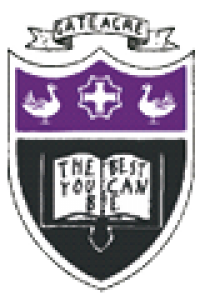Our Intent, Implementation & Impact
Intent: Our purpose and ambition
The purpose of the Media Studies Department is to allow our students to interpret and understand the world in the context of Media Studies, which is rich in semiotics, and sociological and ethical concepts. The aim is that they will progress and achieve both academically and socially, and their study will enable them to develop the necessary skills for later life.
The Media Industry is one of the fastest growing in the UK and Liverpool in particular. Many students have gone on to study Media Studies and related subjects at university, and subsequently taken careers in related industries. Others have pursued a variety of disparate professional occupations.
The Media Studies Department believes that demanding and challenging work is an entitlement to all students, and it is our intent to challenge all students academically. Access to difficult material will be secured within lessons through questioning and discussion, scaffolding, modelling, feedback and independent practice. It is our intent that teaching and learning will be routed in the science of learning and evidence-informed.
Implementation: Design, Pedagogy and Assessment
Sequencing
There is significant thought and consideration into the order that set works (and lessons within each) are taught. Knowledge is delivered and accumulated in a logical, cumulative progression.
Building Blocks
Key strands and recurring themes are identified within each of the faculty’s domains. The big ideas are made explicit to students and built on what Willingham calls ‘the unifying ideas of each discipline’.
TEEP
All lessons are delivered using the TEEP cycle and the underpinning elements of good instruction. The latest research and principles that form part of the science of learning are bolted on to this model.
Retrieval Practice
Students are given the opportunity to revisit content. Strategies such as interleaving, dual coding, low stakes quizzes and knowledge organisers are incorporated. New media theories are delivered in the context of past set works.
Differentiation & Challenge
All students are challenged. Differentiation does not take the form of ‘bespoke’ worksheets. Difficult concepts are broken down, scaffolded and modelled according to Rosenshine’s principles.
Assessment & Feedback
Assessment is clearly focused and varies depending on purpose. Assessments are planned to ensure high validity and reliability. They feedback into teaching where appropriate. Feedback is focused.
Literacy & Numeracy
Disciplinary literacy techniques are used to explicitly develop students tier one and tier two vocabulary. Opportunities to develop numeracy are taken where appropriate.
Cultural Capital and SMSC
Opportunities are planned within schemes of work for students to advance their cultural and social capital and develop as individuals on a spiritual and moral level. This is explicit to students.
Linking Curriculum to Careers
Students are to be given the opportunity to analyse a career linked to individual topics within the scheme. Time is given for students to reflect on their potential career options/pathways.
IMPACT: Attainment, Progress, Knowledge, Skills and Destinations
The impact of our curriculum will be assessed each year using the different types of data available to us. This data will include exams results analysis, examiners reports, emerging research, QA, student voice and staff voice. We also seek to collaborate with colleagues from different centres where possible, and keep up to date with the latest studies and contemporary events linked to our subjects. The acquisition of knowledge should be modelled for students by staff.

